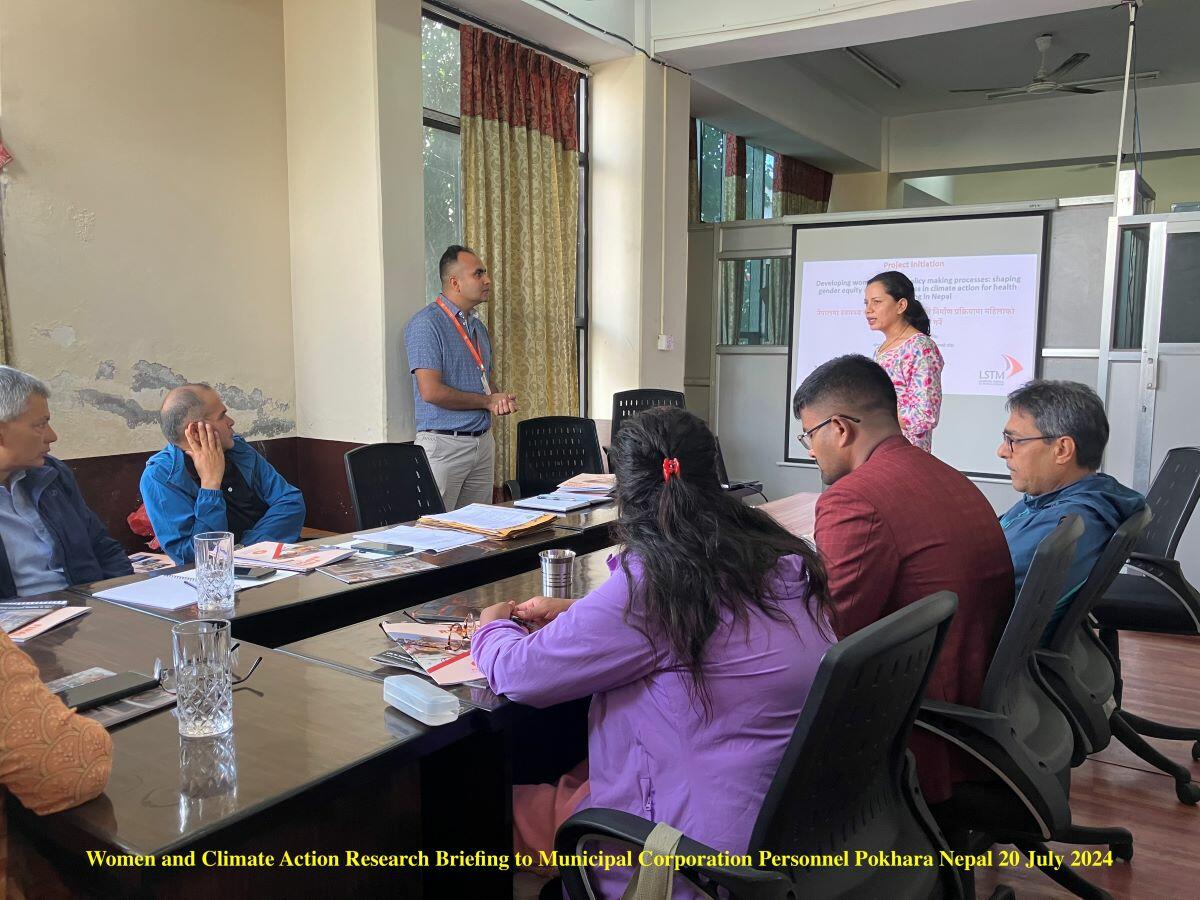
Researchers at Liverpool School of Tropical Medicine (LSTM) will help to improve gender equity and social inclusion in climate change-related health policies and decision-making processes in Nepal.
LSTM has successfully received funding from this year’s ODA Challenge-Oriented Research Grants programme 2024 for the 18 month project. It aims to bring together marginalised women, policy makers and a team of researchers from humanities, social sciences and health in Nepal (PHASE) and the UK (LSTM) using creative methods such as photovoice, participatory video, street drama and storytelling to involve women in climate change-related health policy and decision making in Nepal, which is currently at a critical juncture for both climate action and gender equality.
The inclusion of women and marginalised groups in policy formation and decision making is integral to effective climate governance, yet women remain underrepresented in policies and decision-making processes despite increased consideration of gender in national and international climate change policies.
LSTM’s Dr Jiban Karki, lead researcher on the project said: “We are extremely grateful to the British Academy for funding our research on women's participation in climate action and health-related policymaking in Nepal.
“Given the recent transition of Nepal's health system from a centralized to a federalized model, we believe this timely research will enhance evidence-based policymaking in Nepal and contribute to the academic discourse on women's involvement in policy processes, offering insights that may be applicable in other contexts.”
Female Community Health Volunteers, locally elected women representatives and local women leaders of the political partners will be co-researchers and study participants. Work will take place across two sites prone to severe impacts of climate change, such as increased landslides, floods and cold.
Focussing on three core aspects of gender inclusive policy, researchers at LSTM, in equitable partnership with marginalised women and policy makers, will then develop and pilot strategies to overcome the barriers affecting climate governance in Nepal.
By empowering women in climate change-related policy making as holders of knowledge and agents of social change, it is hoped the project will help to improve gender equity in climate change and deliver equitable policy processes.